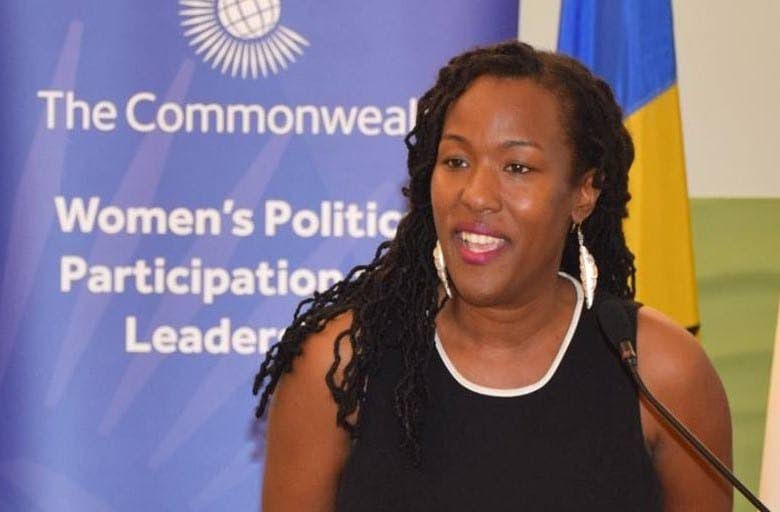Gender lens investing: UN Women, US firm to help women-led businesses

The move to gender lens investment in the Caribbean, an initiative of UN Women and US firm Portland Private Equity, in partnership with the 2XCollaborative, has begun with an agreement to make financing accessible to women-led businesses.
Government leaders, regional and multilateral development finance institutions, and public and private investors gathered virtually to launch the initiative on December 10, during which a memorandum of understanding (MOU) was signed between the UN Women Multi-Country Office (MCO) Caribbean and Portland Private Equity.
2XCollaborative was created to serve investors across the globe, making their first gender-focused investment.
Gender lens investing is a strategy that takes into consideration gender-based factors across the investment process, and the programme is intended towards bolstering gender lens investing in the region, specifically by enhancing capacities across the private sector and governments to ensure businesses owned or led by women have access to capital to develop and scale their businesses.
Regional director for the Americas and the Caribbean, UN Women, Maria-Noel Vaeza, speaking at the signing, described it as "a pivotal day for UN Women and for the Caribbean."
"This MOU with Portland Private Equity will implement gender lens financing with the Caribbean Basin Gender Equality Fund (the Gender Equality Fund), leading the region in gender equality investments across the wider Latin America and the Caribbean region."
With the technical support of UN Women, she said, "This fund is the first regional investment under the Global 2X Collaborative launched by the 2X Challenge founded by the DFIs from the G7 as a call to action for investment capital to empower women."

The fund will build on lessons from the Innovative Financing and Gender Lens Investment Initiative launched in Latin America in 2020 by UN Women to attract private sector investment, strengthen the ecosystem of gender-sensitive investments, and contribute to the generation of partnerships for the achievement of sustainable development goal five, mainly through the promotion of capital mobilisation and investments oriented towards the gender lens.
Doug Hewson, managing director of Portland Private Equity, founding member of 2XCollaborative explained why gender lens investing was good for business.
"As a general partner of growth equity funds," Hewson said, "our job is to attract, understand, do due diligence and influence the growth of our portfolio businesses, and we think incorporating gender lens investing will help us find more interesting business in the region to invest in and in terms of value, we think that more diversity leads to better corporate cultures, better decisions and better outcomes."
Hewson said, as a private equity company adhering to standard industry practices, gender lens investing proves more profitable, referencing the significant rise in gender-smart investing, with a reported US$4.8 billion raised in 2019.
"Consistent with our experience in building ESG (environmental, social and governance) principles across our investment process and portfolio, incorporating a gender lens is necessary as a value lever resulting into competitively advantaged businesses and superior investment results.
"Failing to incorporate a gender lens is the equivalent of deliberately ignoring a key driver of business performance."
During the launch event, the Belize Power Connect Ltd, a women-owned company in Belize, was highlighted because of the innovative financing measures employed to support its growth.
While celebrating the progress of women in participating in higher levels of education and the increase of women in the labour force, during his keynote speech, Belize prime minister John Briceno underscored the importance for women to be able to access financing to grow businesses.
He also spoke of the urgent need to have more women in public life leading policy development and influencing development.
"Here at home, women are underrepresented in small and medium enterprises," Briceno said.
"The covid19 socioeconomic impact assessment conducted by UNDP indicated that 83.9 per cent of business owners in Belize are micro-enterprise owners with 11 per cent as small-enterprise owners.

"Of that number, 55 per cent of micro-enterprise owners are women but results revealed that most small and medium enterprises (SMEs) are owned by men.
"Many women-owned or led businesses continue to struggle with a lack of access to capital to develop and scale their businesses," Briceno said.
Meanwhile, representative of UN Women MCO Caribbean Tonni Brodber, said although women in the Caribbean are highly entrepreneurial, "they struggle to access suitable finance and support for their businesses.
"Lack of access to capital," Brodber said, "is one of the main reasons women-led businesses fail and the region has the second highest failure rate of women-owned businesses globally."
Acknowledging the gap in capital for SMEs in the region, Inter-American Development Bank's Caribbean Country Department general manager Therese Turner-Jones called on all stakeholders to identify opportunities for collaboration to grow gender lens investing in the region and commended UN Women for its work to develop an innovative approach to financing.

Comments
"Gender lens investing: UN Women, US firm to help women-led businesses"